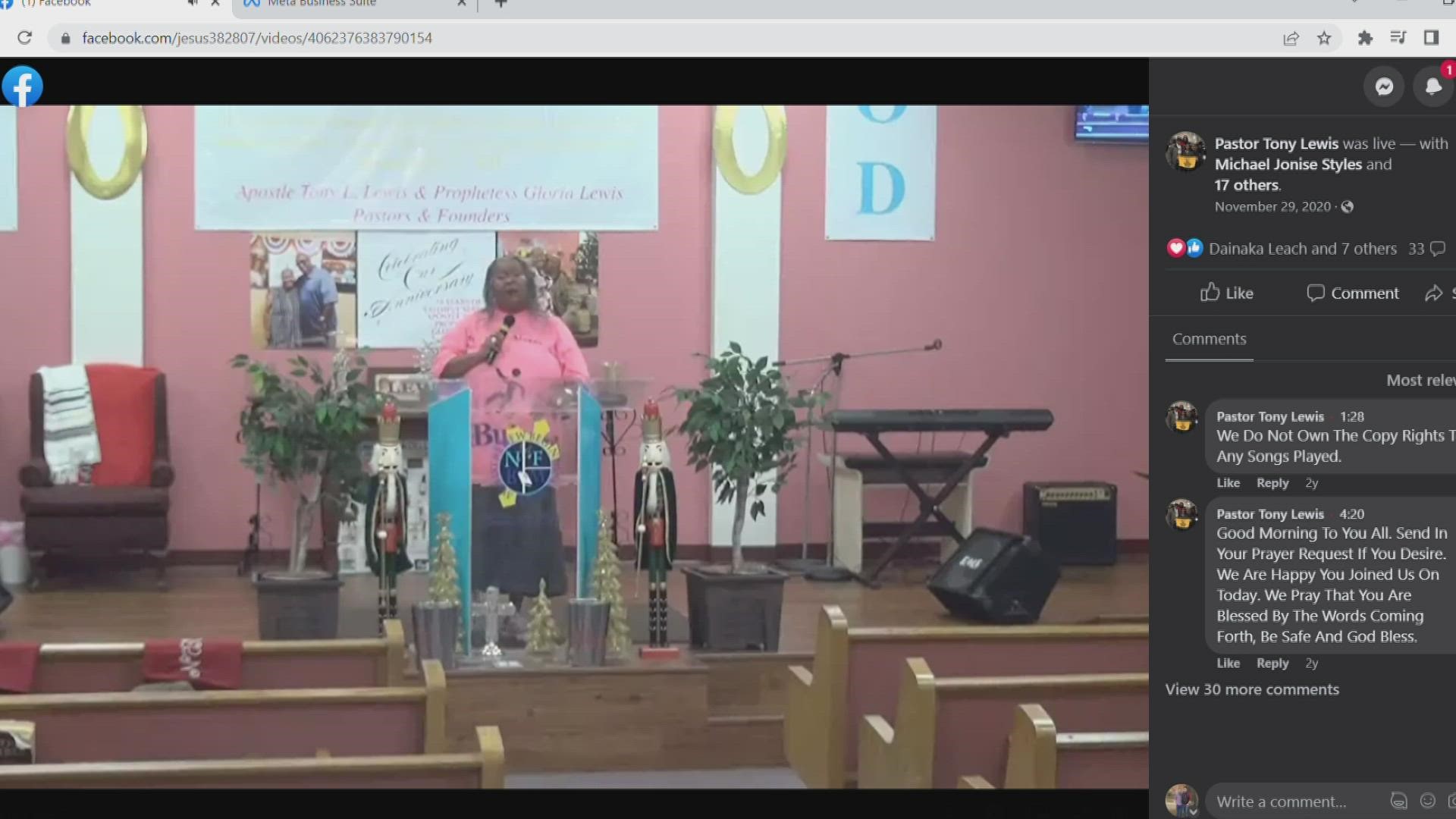LONGVIEW, Texas — February is Black History Month. Although the community uses this month to reflect on great accomplishments, it’s also a time to focus on other topics that have been stigmatized like mental health.
"It's a generational curse that we have not dealt with in our culture," said Pastor Gloria Lewis with New Beginning Faith Ministry in Longview.
Gloria Lewis along with her husband Tony Lewis are both pastors at NBFM. A church where Gloria Lewis said they’ve been able to successfully help those in need, especially with mental health through faith.
"God has put us here for that purpose, to see about our brothers and sisters to strangers," she said. "Whoever might enter into these doors."
Dainaka Leach, a minister in training at NBFM, said within the Black community they are taught survival and not love. She’s been with the church for over 22 years and said faith, and the people here have prevented her from committing suicide.
"While I was in that moment, I felt like that was the end," Leach said. "But then I heard the voice of the Lord and he was like, not yet. It's not your time. It was crazy, because I was driving and my daughter called me at the exact time that he said that, and that saved my life."
From dealing with a stroke, to anxiety and depression, Leach said she’s personally sought therapy but continues to put her faith first.
"It helps me to know that I can come to this place to get help," Leach said. "We know they're not licensed, but they're licensed by God and I appreciate that. If I need outside help, I know I can go somewhere else."
According to the American Psychiatric Association, African Americans often receive poorer quality of mental health care and lack access to culturally competent care.
Marcus Wade, a Tyler licensed clinical social worker and chemical dependency counselor, said there aren't many Black Americans in the mental health industry.
"Looking at the successes of the number of people that are African American descent, doing counseling, may they be licensed professional counselors, or social workers in general, or just addiction professionals there are maybe 4%," said Wade with Marcus Wade Counseling Service.
Wade said African Americans make of 18% of the nation's population, but only 4% are in mental health roles. Wade got into this industry to help people have a chance at change.
"Stopping certain words from penetrating through our thought process, like this is just who I am, no one can change me, it is what it is, all those concrete type words that keep us stuck in emotional hurts," Wade said.
Wade said he thinks that most people he grew up with focused on was their connection with faith in regards to dealing with their mental health.
"I think that probably was an important piece that kept a lot of African Americans from going to counseling is that we ask God to resolve things," Wade said.
Pastor Gloria Lewis said she believes there is a stigma within the African American community that prevents people from seeking help.
"A lot of times we don't want to admit that's what it is," Gloria Lewis said. "We won't reach out to the doctors and a lot of people think if you go to psychiatrist you crazy."
Gloria Lewis is speaking from experience. She said sometimes people just need a professional to see what they don't see. She’s recently seen a psychiatrist who helped her deal with childhood trauma.
"Believe me, he got to the bottom of it in three visits," Gloria Lewis said. "Yes, I can see things all the way differently that happen to me at 8 years old. That came back up again at 65."
Sunday school leader Rossi "Rose" Allen said mental health is one of those things that the Black community doesn't like to deal with because they were raised to be strong people. She said growing up before school integration her parents taught her to be herself and to not seek validation from other cultures.
"I have dealt with mental health with my family, with my kids and with myself," Allen said.
Regardless, she still sought help and faith for her children and said seeking faith or counseling is a valuable tool to use.
"If you can get out of the box, get out of that stereotype, and take advantage of what's out there do it's often," Allen said.
Leach said depression and other mental illnesses are a spirit that needs to be dealt with faith.
"But you can’t have things dealt with if you don't say what you're dealing with," Leach said.
Gloria Lewis said people are afraid to deal with their mental problem because they fear others will call them crazy.
"No, when you have a problem talk to someone that you can trust. They can help you with your situation," Gloria Lewis said.

